The New Levant Initiative: Is it in Iraq's interests to enter an alliance with Egypt and Jordan?
Nine questions about the New Levant Initiative.
By Abdullah Musawi
Q1: What is The New Levant initiative?
The purported purpose of the “The New Levant Initiative'' (NLI) is to boost trade and security between Iraq, Egypt and Jordan and work towards gradual economic integration between the three countries.
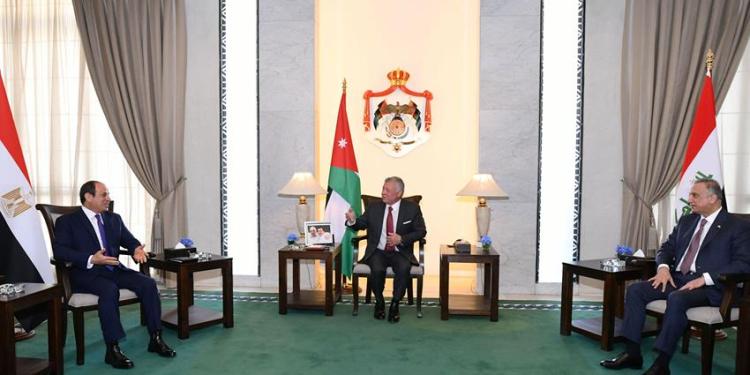
At first sight the New Levant Initiative and its stated goals could be seen as a positive development from an Iraqi perspective because it gives the impression that it can turn Iraq into a regional player. However, upon closer scrutiny it will become visible that this initiative is to the detriment of Iraq.
In a joint communiqué released by the participating countries the goal of the project is described as:
The need to translate the strong strategic ties between the three countries into cooperation in vital sectors, such as electricity interconnection, energy projects, and a joint economic zone, while capitalizing on each country’s potential to achieve an integration in resources, especially to deal with the implications of the corona virus disease (COVID-19) pandemic on health care and food and economic security.¹
The communiqué states that the backbone of the initiative would “solve” Iraq's energy needs by connecting Iraq to the Egyptian electricity grid. In return pipelines would be built through Jordan to transfer Iraqi crude oil to Egypt. Moreover, Iraq would grant reconstruction projects to Egyptian companies simultaneously offering Egyptian laborers work in Iraq.² Additionally, the list of Jordanian products exempted from import taxes entering the Iraqi market would be expanded.³
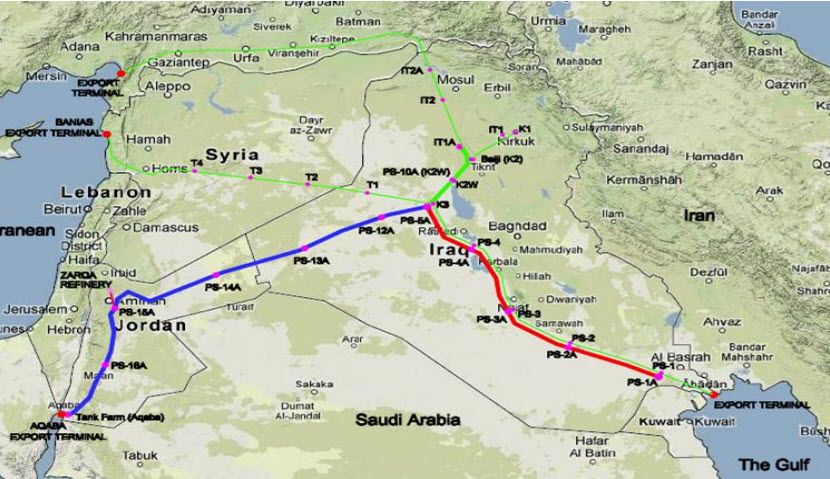
Q2: Why is the initiative controversial?
Many have criticized the Levant initiative launched by Iraqi prime minister Mustafa al Kadhimi. It was not seen as coincidental that the New Levant Initiative was announced by the Iraqi prime minister after his visit to the white house last year. The timing of the Levant Initiative prompted many to interpret this move as succumbing to American pressure. The reason why it was seen as a pro-American project is because the New Levant initiative disengages Iraq from Iran, Syria and Lebanon. The LNI is interpreted as an attempt to make Iraq normalize with Israel by allying it with other American client states who normalized with Israel. The “The New Levant Initiative" ironically excludes Syria, the historical heart of the Levant or “Bilad Al Sham”.
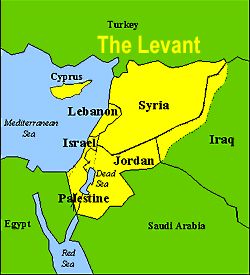
If Iraq joins the NLI, it would make Iraq complicit in the sanctions against Syria. Other observers have pointed out that the initiative amounts to the handing over of Iraq's wealth to Jordan and Egypt.
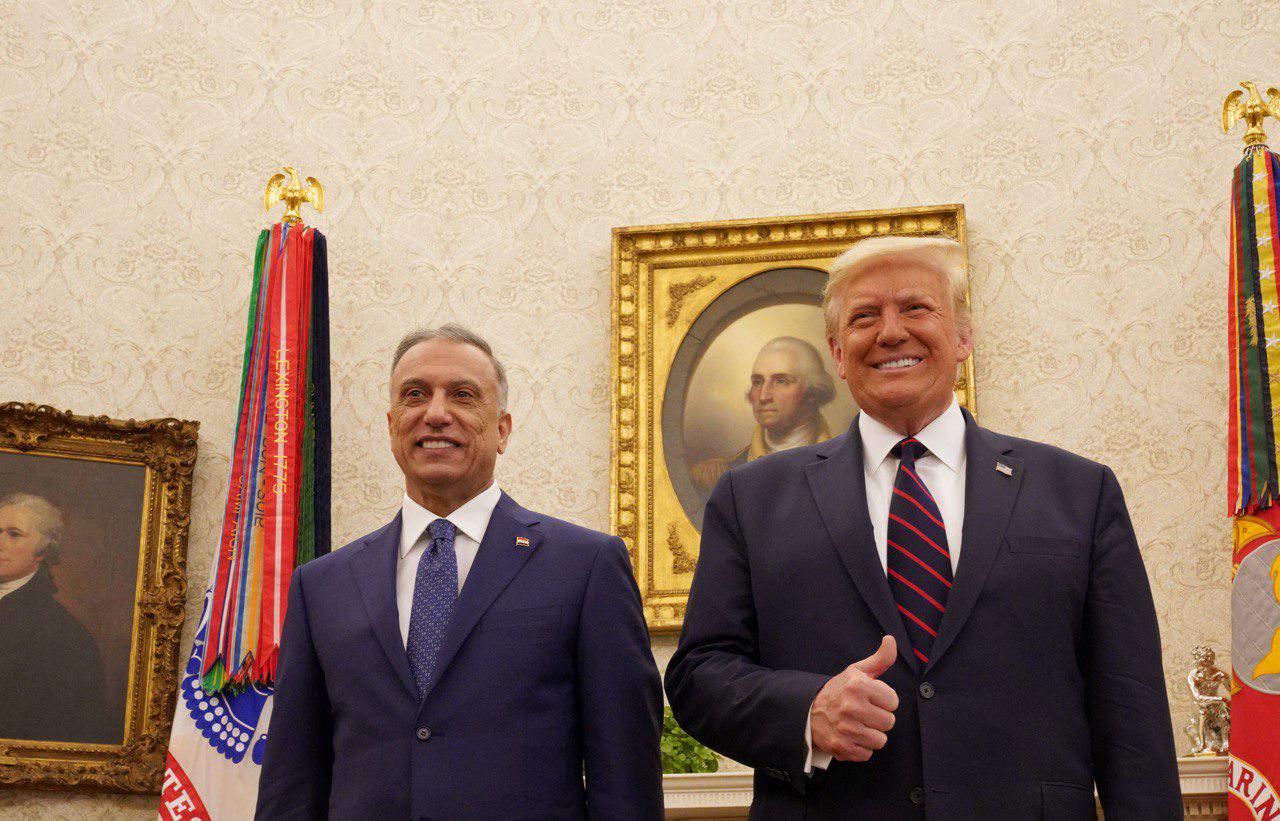
Q3: Why does the US push for this initiative?
There are several reasons why the US pushes for the New Levant Initiative. The New Levant initiative lies at the intersection of US geo-political strategy and the regional interests of United States allies such as Egypt and Jordan.
The geo-political configuration that has shaped the world for the past centuries was defined by the struggle for control over resources, trade routes and markets. If the trade of goods and access to key markets are the blood of the world economy, then the trade routes are most certainly the veins. The US asserted itself as the world's unipolar power especially after the end of the cold war in 1991 by using its military might to control both the blood and the veins of the world. West Asia is a region of great geopolitical importance for the United States because it has most of the world’s fossil fuels and lies at the intersection of three continents. These policy aims were already formulated by the Eisenhower regime when they described West Asia as“the most strategically important area of the world” because of its “strategic position and resources.”⁴
The New Levant initiative would bring Iraq into the alliance of US allies in the region. The US blocks Iraq from trading with Syria and Iran and instead pushes for the NLI as an alternative. With the implementation of the NLI the US will effectively take control of the resources and trading routes. This way it undermines the emerging Alliance between the countries resisting US hegemony.
The world is changing however. The balance of power is shifting: both China and Russia and other regional powers are emerging as global and regional competitors to US hegemony.
Q4: What part do other world powers play?
While Russia contests US power with its military might, the trade of arms and control of gas pipelines, China, however, has been projecting its power by building alliances through trade and the construction of infrastructure. This latter endeavour has culminated into the launching of the BRI: The One Belt One Road Initiative. With the BRI China aims to connect Africa, Asia and Europe through land and maritime infrastructure. The BRI increases trade and economic development between the involved countries and brings peace and stability in the long run.⁵
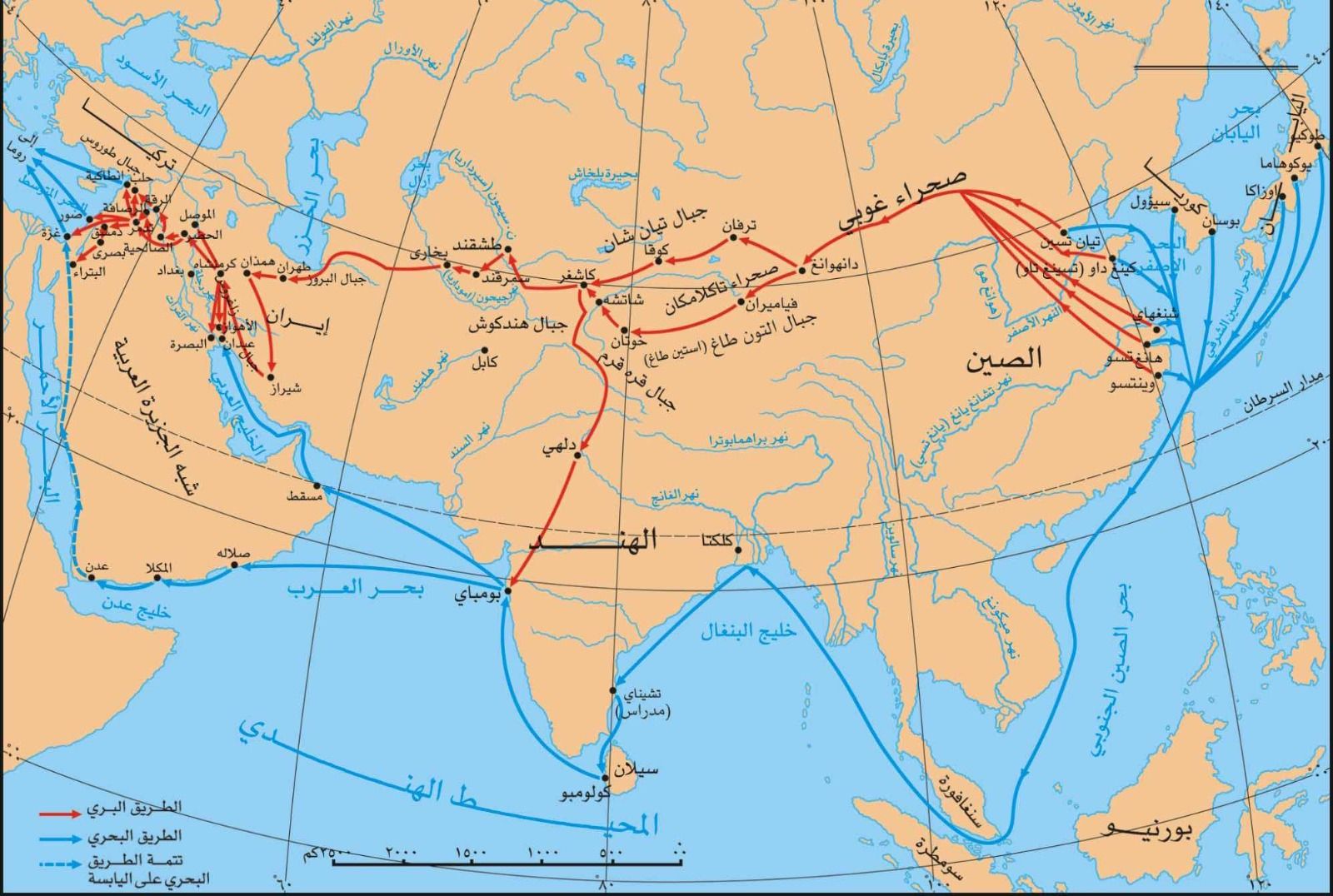
It is projected that China will overtake the US as the biggest economy in the world in the coming decade.⁶ In terms of purchasing power parity (PPP) China’s GDP is already higher than that of the US.⁷ The US is therefore shifting most of its military might to the pacific as a means to contain Chinese growth in what they call the “pivot to Asia”.⁸ The same policy is reflected in West-Asia: The new US strategy in the region is centered around the containment of China.⁹
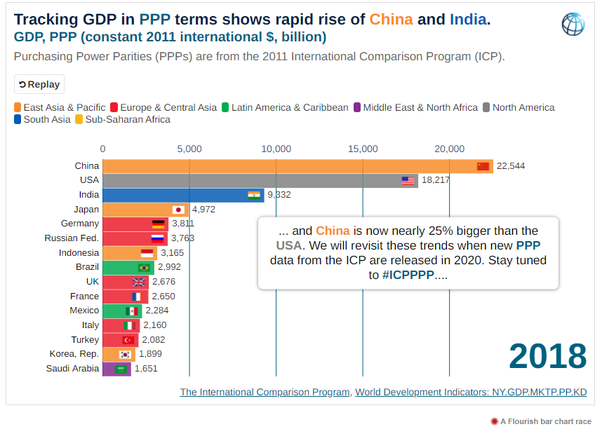
One might ask how this relates to Iraq. China is one of Iraq's biggest trade partners and China imports about one million barrels a day from Iraq.¹⁰ Besides having one the worlds' largest oil reserves, Iraq lies at a strategic geographical position and thus is a great value to the Belt and Road Initiative. Being in need of investment and reconstruction, Iraq signed a Memorandum of understanding and a strategic partnership with China in 2015.¹¹

In the years that followed plans were drawn and agreements were signed for an Oil for Construction agreement.¹² The money of one hundred thousand barrels per day would be reserved in a Chinese bank. The money would then be used for reconstruction projects. A very important aspect of this set-up is that using a Chinese Bank circumvents the corrupt Iraqi bureaucracy.¹³ Vital infrastructure and industries would be built and the Iraqi workforce would be included in the projects. Modern railways, ports, hospitals, factories and mega housing projects would be constructed as part of this agreement.
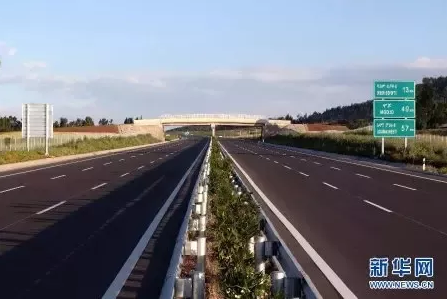
If the BRI is implemented this would mean Iraq would leave the US Sphere of influence. The US therefore pressured Iraq to abandon the China deal, Afterwards the US pushed Iraq to enter an alliance with pro-American countries such as Egypt, Jordan and the Gulf as an alternative development strategy and to keep Iraq within the sphere of American influence. It is not the first time that the US blackmails Iraq and blocks it from making reconstruction deals. In 2018 the US forced Iraq to abandon a $15 Billion deal with Siemens AG to develop power stations in Iraq, effectively perpetuating Iraq’s electricity problems.¹⁴ With the NLI the US intends to serve both its broader Geo-political and regional interests: undercutting China, blocking the regional alliance between the countries outside its control and strengthening its local allies.
Q5: What does Iraq gain from the New Levant Initiative?
For Iraq, integration with Egypt through Jordan means becoming a virtually landlocked country which relies on an enormous detour to reach key European markets. Iraqi Oil would have to pass through very narrow straits in order to reach Europe, making oil export more expensive and time-consuming. Furthermore, part of the deal will be that Iraq will provide heavily subsidized oil to the countries part of the alliance.¹⁵ Simple stated: in this deal Iraq will provide crude oil resources for basic commodities in return. Additionally, demand for oil is increasing in the East and not Europe which therefore harms both Iraq’s economic potential as well as countries such as China. Diverting trade routes from the east to Europe is therefore more related to political motives than economic reasons.
Other than getting basic goods from Egypt and Jordan, no industries or key infrastructure would be built that could improve Iraq’s national independence. In fact nowhere in the issued NLI communique it is mentioned that the pipelines from Iraq to Egypt would serve as a conduit to the European market. Most reports speak only of subsidized Iraqi oil and a lucrative market to sell products and win construction projects for Egypt and Jordan.¹⁶ According to a report by Al Hurra, a US state sponsored news channel in Arabic, the Iraq-Jordan-Egypt alliance would rely on Iraq’s wealth in natural resources while Jordan serves as a conduit between Egypt and Iraq. Egypt’s role according to the report would be providing the workforce needed for the project.¹⁷ Iraq would also be losing out by providing subsidized unrefined oil instead of creating added value and selling oil derivatives. Moreover, instead of solving Iraq's rampant unemployment problem by relying on the Iraqi workforce for the newly created jobs, these jobs would go to Egypt. While Iraqi youth unemployment is estimated by the world bank to be 36 percent,¹⁸ The NLI would provide job opportunities in Iraq for over 2 million Egyptian workers.¹⁹
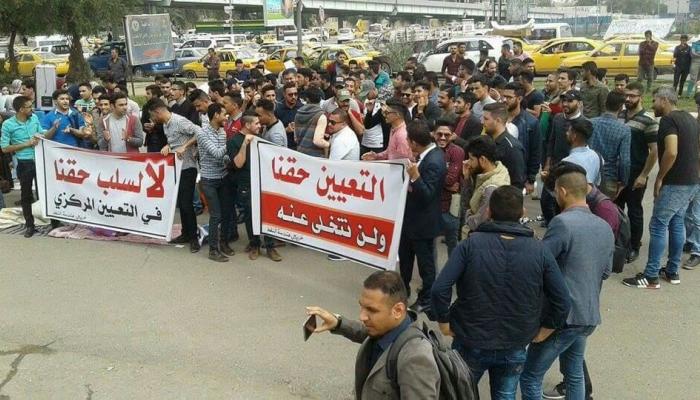
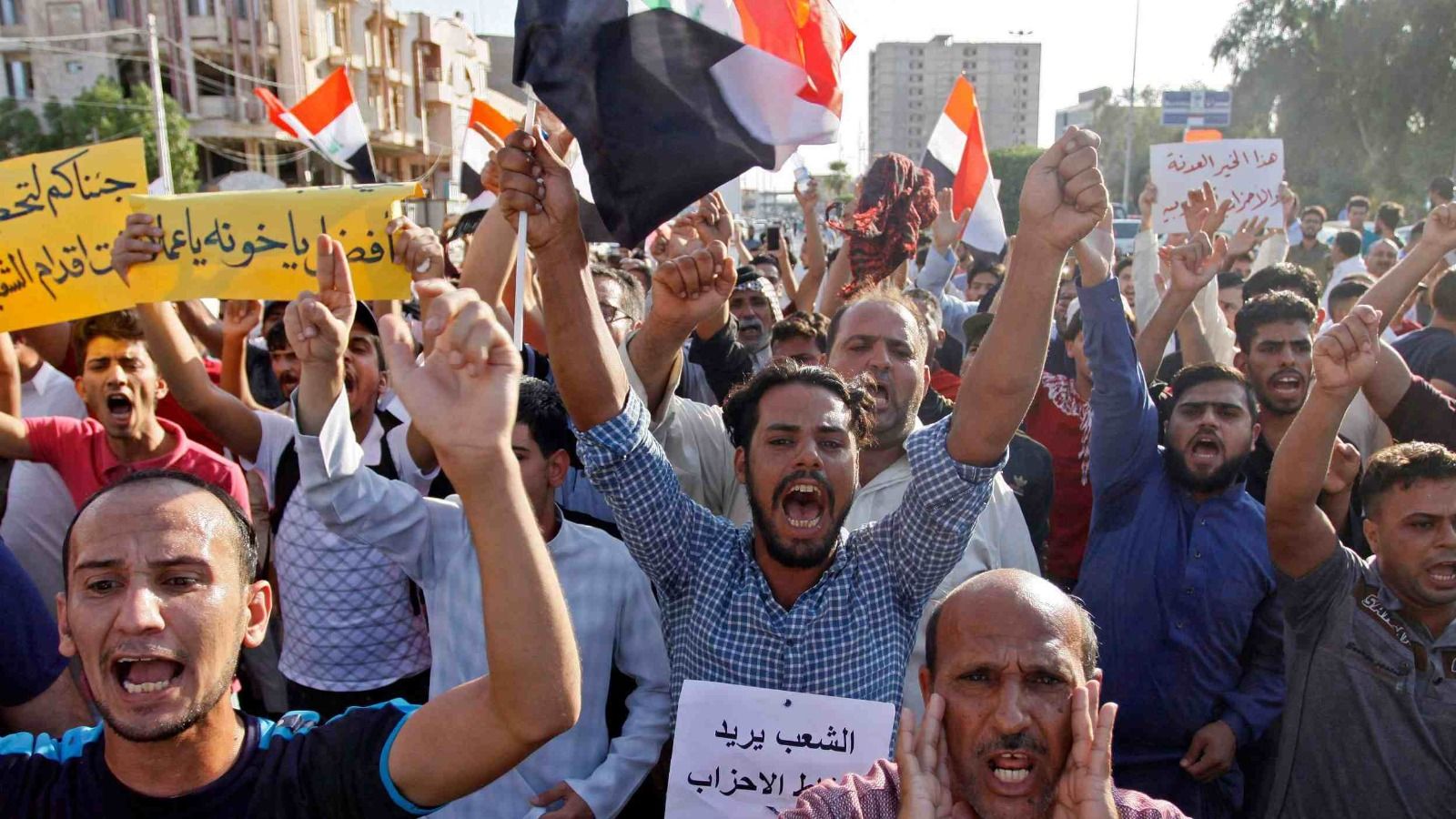
Egypt and Jordan are both heavily indebted and are both dependent on American aid. This puts them in a position where they are limited in their sovereignty to serve the interest of their own countries and the region. Rather than the interests of the people it is the dictates of American foreign policy that heavily impacts their regional role. Consequently, Jordan and Egypt have been reduced to tributary nations for the Zionist regime by giving their consent to all the hegemonic aspirations of the American project in the region. The NLI offers Jordan and Egypt the opportunity to tap on Iraq's wealth and offer some respite to their ailing economies.
Integrating Iraq with Egypt and Jordan would indirectly make Iraq part of the Arab-Israeli alliance. This role as a tributary nation amounts to killing Iraq's potential to become a key player in the region.
Q6: Where do Iraq's interests lie?
The New “Levant” initiative is against the interests of Iraq. Being rich in natural resources, Iraq needs access to markets. Subsequently, access to the Mediterranean is a vital interest for Iraq, rendering Syria and Lebanon strategic depth to Iraq. Therefore, it is imperative to work towards an economical integration with the actual Bilad al Sham / Levant. Historically this economic corridor already existed. In the 1970’s the biggest part of the capacity of Beirut’s port was used to serve the Iraqi market. Furthermore, pipelines to transfer Iraqi oil to the mediterranean already exist. It does not take much investment to reactivate the existing pipelines from Kirkuk to Tripoli in Lebanon. Besides the regional relations, in the long run this infrastructure could serve as a node in the trade between East-Asia and Europe. It is therefore very important to bring the China deal back to the table and join the BRI.
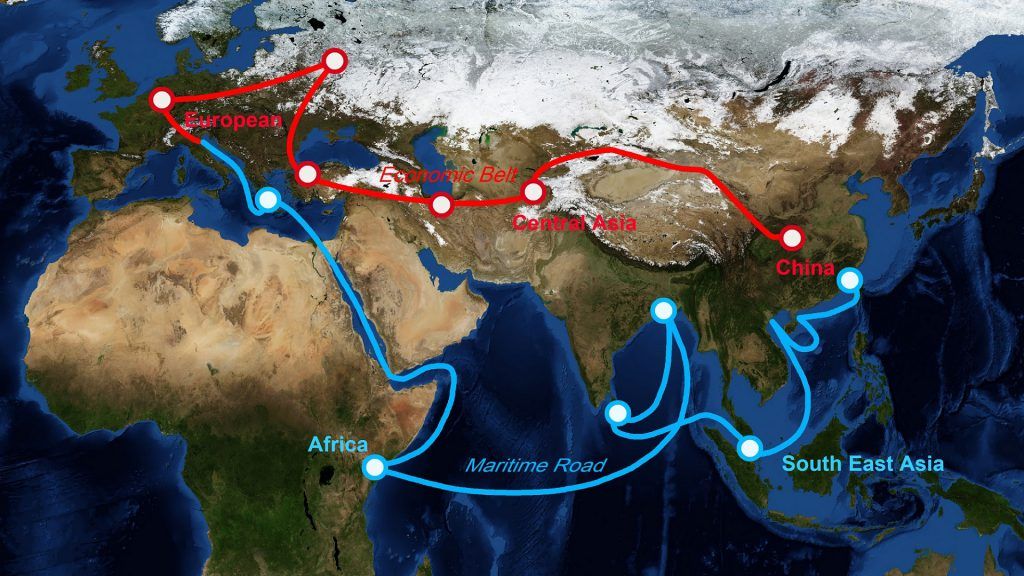
The China deal would build key infrastructure, and industries so that Iraq could refine its own oil derivatives and produce other high value products. The China deal would not require an upfront investment as the construction projects would be paid for by the oil that is already being exported to China. Furthermore China has the experience and knowhow of building mega-infrastructure projects all over the world, something Egypt lacks. Ironically, many of the mega-construction projects in Egypt are being built by Chinese companies. Chinese companies are increasingly outperforming European and American companies in winning construction tenders worldwide.²⁰ Chinese companies are even gaining ground in the EU's public-procurement market, often undercutting competitors by offering lower prices, higher quality and faster delivery.²¹
One of the most important infrastructure projects China can build is the Grand Fao port located in the gulf. The grand Fao port would provide a shorter route for the trade between Europe and Asia as it would bypass the Suez Channel. Building the Grand Fao port would be a great opportunity to diversify the economy and decrease the oil dependency of the Iraqi economy.
In addition to the economic dimension, cooperation on the level of security is a fundamental condition to defeat terrorism and deal with other security threats. The historical, cultural, economical and geographical ties between Iraq, Syria and Lebanon have created a situation in which conflict in any of the countries affects all of these nations. The previous and ongoing battle against the transnational terrorist group of ISIS exemplifies this reality.
Q7: What is the deal of the century and how is it related to the NLI?
The deal of the century is a “peace initiative” drawn up by the United States during the Trump presidency that deprives the Palestinians from their most important demands. In the deal the Palestinians would rescind most of their land, the resources and the right of return and get some investments and loans in return. The initiative would be sponsored by the gulf countries. The deal would serve as a pretext for Arab countries to normalize their ties with Israel. This would open the door for the construction of an economic corridor from the gulf to Israel. Pipelines, railroads, and ports would connect the Arab gulf to Israel.
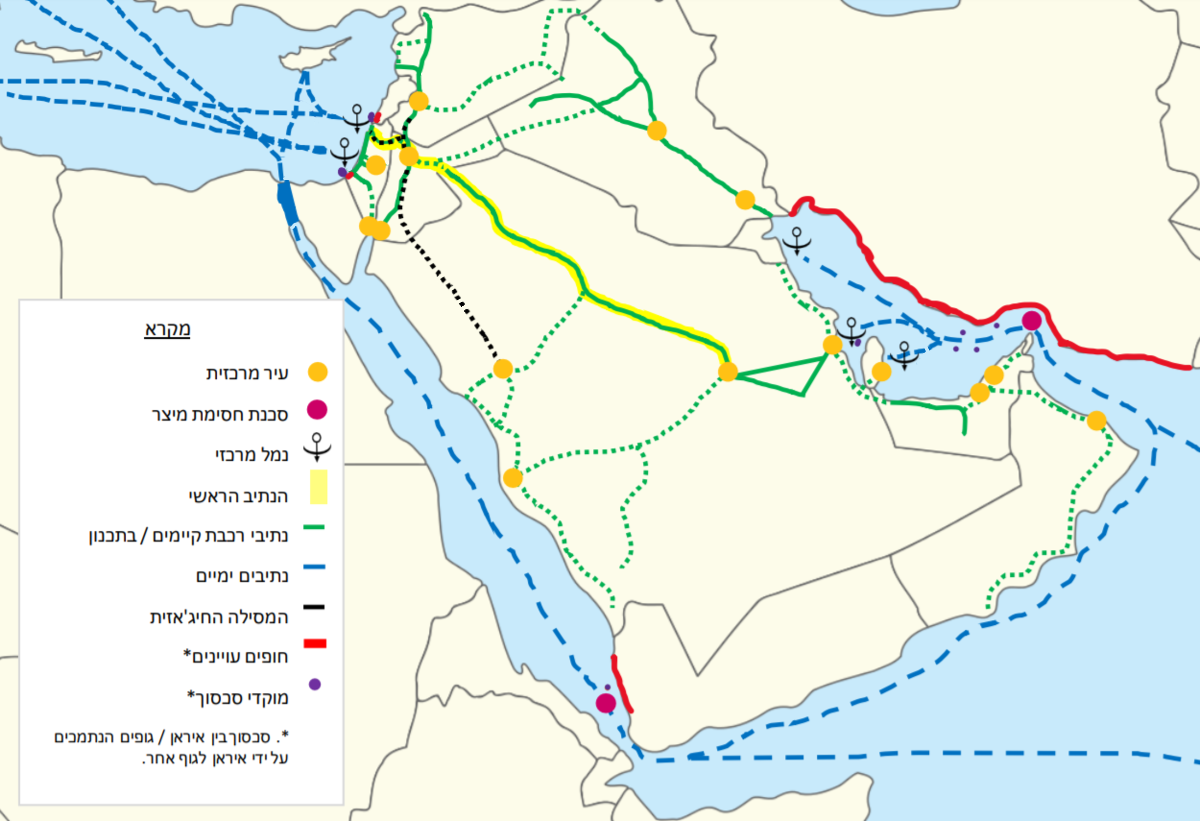
In this plan Israel would be the transit of all economic activity between Europe and West-Asia as well as serving as a hub in the BRI. Moreover, Israel in this deal would have a vast market for its products and technology. This would effectively put Israel in control of the region’s resources.
Palestine might be the country that is mentioned the most in the communique issued by the countries participating in the New Levant Initiative. The NLI was launched around the same time as when the UAE and other Arab states were normalizing their ties with Israel by “signing the deal of the century”. All three representatives claim to be a supporter of the Palestinian people. However, both Egypt and Jordan have normalized ties with Israel for decades already and are part of the Arab-Zionist alliance.
The economic integration and security cooperation between Israel and the Arab world is not possible with the presence of strong nations in the region that have alternative projects that reject normalization with Israel. For the Arab-Israeli alliance, a strong Iraq in a coalition with its neighboring countries is an existential threat and a direct competitor to the deal of the century. It is therefore imperative for the Arab-Israeli alliance to sabotage all competing projects in the region. This is why Iraq is being pressured to cease all trade and coordination with Syria, Iran, Lebanon and instead only align itself with countries that are part of the Arab-Israeli Alliance such as Jordan. In an attempt to disrupt trade and coordination between Iraq, Iran, Syria and Lebanon, the US and Israel have been bombing the Albu Kamal - Al Qaim crossing between Syria and Iraq frantically. ²² ²³
The NLI and the Deal of the Century complement each other. For example, if the economic corridor from the Gulf to Israel would be implemented it would mean a lot of trade would be re-diverted away from the Suez Channel. This would mean Egypt would lose a significant part of its income. The idea is that these losses would be compensated by Iraqi oil and the opening of the Iraqi market to Egyptian companies.
Another example is that through the NLI many Israeli agricultural projects that have already started entering the Iraqi market through Jordan can increase. Under the NLI many Jordanian products will be exempted from being taxed. With Jordanian labels, Israeli products will enter the vast Iraqi market tax-free. In anticipation of the NLI Israel has already lifted the ban on trade with Iraq.²⁴ This indirect linking of the Iraqi market with Israel is done because explicit Iraqi-Israeli normalization would be rejected by the Iraqi people and potentially cause an armed response from the public. The NLI however, ties Iraq indirectly to the Arab-Israeli Alliance without sparking public outcry.
That the NLI is being used as a Trojan horse to tie Iraq's wealth and infrastructure to the Zionist-Arab alliance stretching from the gulf to Israel was even acknowledged by the American state funded news outlet al Alhurra.²⁵
Q8: How is the relationship between Iraq and Jordan?
The comminqué released by the representatives of Iraq, Egypt and Jordan boasts of great historical ties. This could not be further from the truth. Jordan has participated and profited from many crises caused by the many wars and interventions that were waged against Iraq.
During the 2003 occupation Jordan opened its prisons and released Jordanian armed extremists into Iraq and played a fundamental role in sparking a sectarian war and causing thousands of devastating suicide attacks. High profile Baathist from the former Saddam Regime left Iraq for Jordan with large sums of money and continued destabilizing Iraq from Jordan.
Al-Qaeda in Iraq (the predecessor of the Islamic State) was led by the Jordanian National Abu Musab al Zarqawi. He aimed to kill as many Shia as possible in order to trigger a civil war that would drive the Sunni population under the protection of his group. The Anti-Shia sentiment and rhetoric that was used to fuel the civil war and the suicide bombings was not limited to Jordanian extremists in Iraq only. While at the brink of a Civil war in 2004 it was the King of Jordan, Abdullah the Second who coined the term “Shia crescent” when describing the threat of allied Shia “majority” nations that would upset the balance in the region.


His words echoed the words of his fellow countryman Al Zarqawi who stated the following in one of his letters in the same year:
As the days pass, their hopes are growing that they will establish a Shi'i state stretching from Iran through Iraq, Syria, and Lebanon and ending in the Cardboard Kingdom of the Gulf.²⁶
- Al Zarqawi
Many observers claim that Jordanian support for extremists in Iraq continued well after the establishment of the Islamic state. While Jordan continues destabilizing Iraq, Iraq is still providing thousands of barrels of oil per day to Jordan well under market prices.
Q9: How is the relationship between Iraq and Egypt?
Just like with Jordan, the Iraqi-Egyptian relation has been marked by Egypt joining the coalitions that invaded and occupied Iraq.
In the 1991 war the Egyptian Army joined the coalition that militarily intervened in Iraq. Later on the Egyptian political elites made huge profits during the Oil for food program during the 1990s sanctions against Iraq.
While the sectarian war was raging in Iraq, Husni Mubarak the former president of Egypt echoed the same sectarian rhetoric as King Abdullah the Second of Jordan. In a TV show in April 2006 he claimed that Shiites residing in Arab countries were more loyal to Iran than their own countries.²⁷ Yet again this is a claim that resembles the claims made by extremists groups when justifying suicide bombings against both public spaces and Shia Civilians.
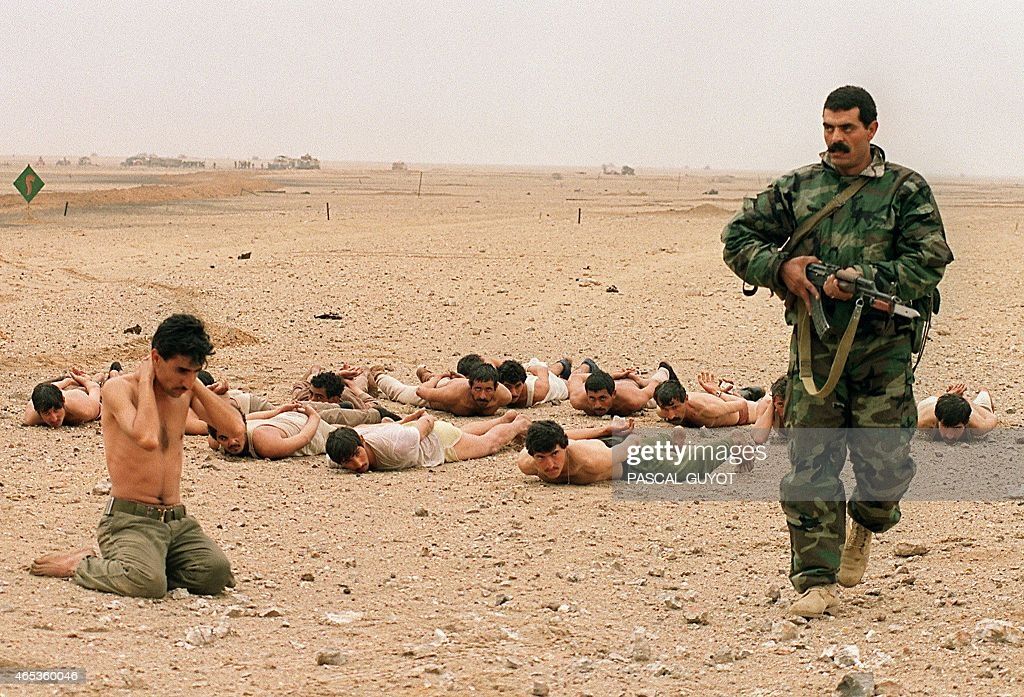
Definitely Iran has influence on Shias. Shias are 65% of the Iraqis … Most of the Shias are loyal to Iran, and not to the countries they are living in.
While the current leaders boast of great “historic ties” between the two nations and shared interests, since the 70’s the relationship has been dominated by many hostile events.
The future of NLI
Making predictions about the implementation of the NLI falls out of scope of this article. It is hard to say if the NLI will survive the changes of power after the October elections. It is however an indication of what sort of future the USA envisions for Iraq.
Whether the initiative will come to fruition or not depends on multiple factors at different levels. The question to ask is: by what means will the political forces opposed to the initiative resist and to what extent can they rally the Iraqi public for this cause?
In the current political configuration in West-Asia power manifests itself along the lines of regional alliances that are often backed by the world’s superpowers. The outcome of these regional conflicts between these alliances will heavily affect the political course Iraq will take in the future. All the factors previously mentioned are intertwined and do interplay.
Author's bio:
Abdullah Musawi is an West-Asia observer and writer.
References
1: The Jordan Times
2: Independent Arabia
3: Al Ghad
4: https://chomsky.info/20080809/
5: Xinhua
6: CEBR
7: World Bank
8: Stripes
9: NDS (2018). Assistant Secretary of State David Schenker, “China and Russia: The New Threats to the Middle East Security and Stability,”
10: World Bank
11: Iraqi Prime Minister
12: Al-Monitor
13: Al-Monitor
14: Financial Times, Bloomberg
15: Al-Monitor
16: YouTube
17: YouTube
18: World Bank
19: Al-Monitor
20: Global Construction Review
21: WSJ
22: The Guardian
23: Iraq Now
24: Middle East Monitor
25: YouTube
26: US Department State
27: Al Jazeera
